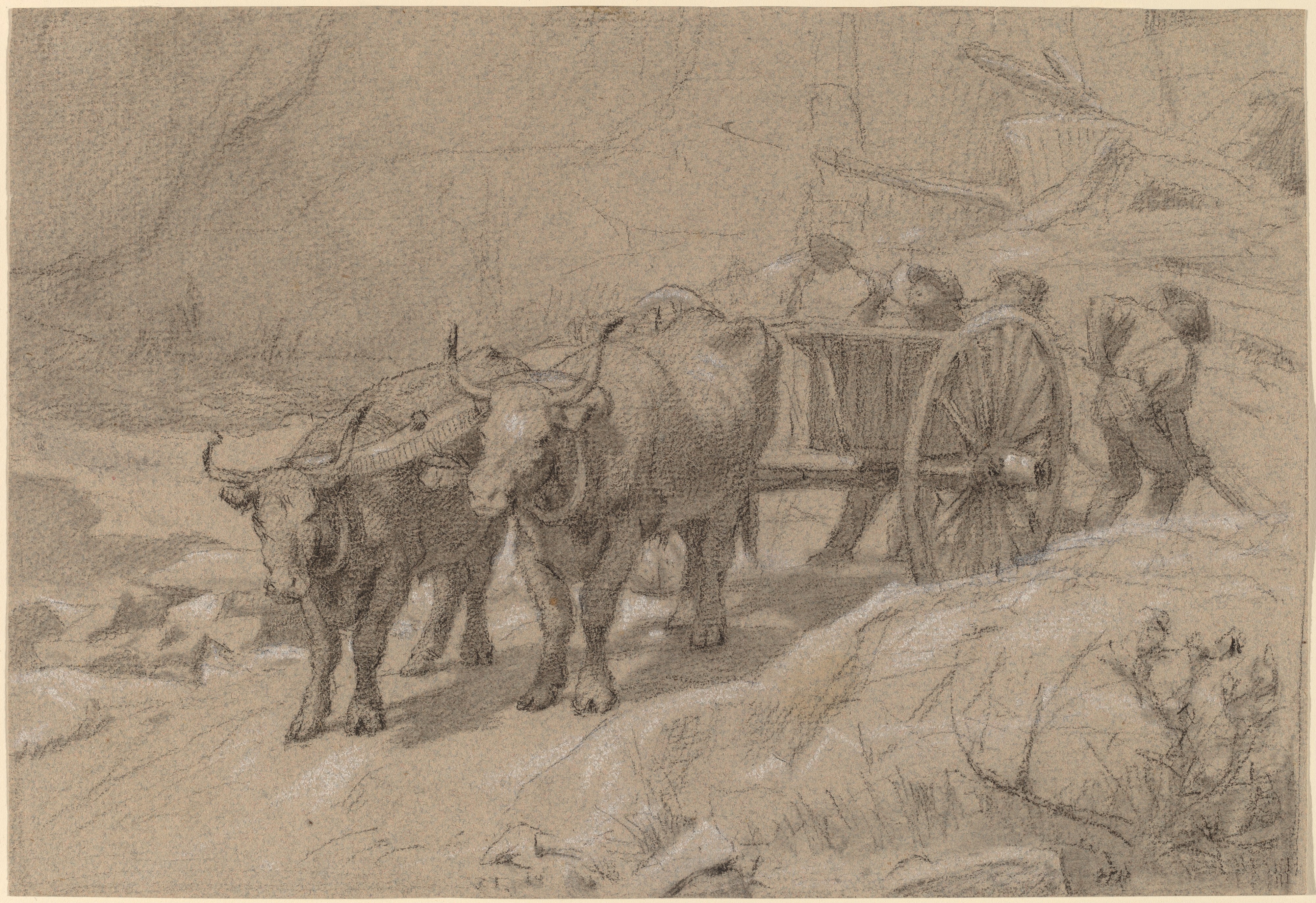
Lindsey Mitzel ponders the burdens she carries in light of obedience to God's call to take up His yoke.
I've had a passage on my heart lately.
Come to me, all you who labor and are burdened, and I will give you rest. Take my yoke upon you and learn from me, for I am meek and humble of heart; and you will find rest for yourselves. For my yoke is easy, and my burden light. (Matthew 11:28-30)
This year has been one of the most stressful times in my life. Just added was an emergency hospitalization of a close family member for the past two weeks. Life often feels like survival mode right now, and I want badly to experience significantly less chaos.
I happened to take up reading Farmer Boy by Laura Ingalls Wilder recently. I don't mean re-reading; this is, shockingly, my first time through the series (I know, I know). Growing up, my dad had an old plow not unlike the kind Almanzo would have trained his oxen calves to harrow with. My dad, who used to own work horses, had tried to turn over his garden with it. The work was hard.

This is the image I'd generally had when reading this passage in the past, though now in its place are images of Almanzo hitching his sled to the yoke of oxen admist large drifts of snow.
I say that this passage has been on my heart, but honestly, I think I've been wrestling with it, not so much pondering it. What kind of rest will Jesus give? What does that even look like in my life? It's not like all the craziness will be taken away. What is God's "light burden" if my life in survival mode is largely comprised of things that are beyond anyone's control and not of my choosing?
The yoke that Matthew refers to can connect two oxen (or horses) to each other to burden a load together. If one animal veers right, the other must follow. The team is trained to obey the master who commands them to move in one direction or another, as well as to not fight against the team. Moving together creates a multiplied power, whereas struggling against each other will cause disorder and hinder the work that should be done.
Jesus promises rest when we come to Him. His yoke is yoked to Him, or He is the master. If yoked to Him, he leads gently, and struggling against Him will only keep me from moving in any direction, let alone actually accomplishing something. Yoked to Him, there is a multiplied power to fulfill the desire of the Master -- the ultimate plan or purpose that He has laid out. If Christ is the Master, then he gently and humbly teaches me how to obey. My parish priest told me recently that we tend to focus on the results of something -- what is attained, a reaction, or improving in something or not, etc. But often more important to God is the answer to the question, "Were we obedient to His will?"
An incident came up recently in which I felt a lot of anxiety. In my fear, I asked Jesus what I should do, and He gently reminded me to accept humility. Accepting humility is never easy, and I don't want to give the impression that it was for me in this particular situation, but when I tried to, what I noticed suddenly was an incredible persistent peace. For me, it was an answer to how my heaviest-feeling burden can miraculously be made to feel light.

The burden didn't change, but I did find rest from worry. In the moments of surrendering over this burden, I allowed Jesus to be my Master, and tried to be obedient to what He asked of me, rather than being obedient to my concerns. Sort of like Almanzo's oxen compliantly pulling a sled, versus galloping down the road into a mound of snow, obedience to Jesus' will for me requires my listening to His voice and doing what He asks of me. When something might frighten me, Jesus asks me to trust in Him and continue to obey, rather than run off the path in an attempt to save myself.
Copyright 2021 Lindsey Mitzel
Images (top to bottom): Andrea Piacquadio (2020), Pexels; Edwin Forbes, National Gallery of Art open access collection; Lisa Fotios (2018), Pexels
About the Author

Lindsey Mitzel
Lindsey Mitzel is a nurse practitioner and mom to six littles. When not homeschooling or driving her kids to various places, she enjoys gardening, hiking, and running. Lindsey appreciates dry humor, a good pun, and coffee. You can read more about her at Eight and a Half Months. Lindsey also occasionally writes for Be Love Revolution's Tiny Thoughts blog.


.png?width=1806&height=731&name=CatholicMom_hcfm_logo1_pos_871c_2728c%20(002).png)
Comments